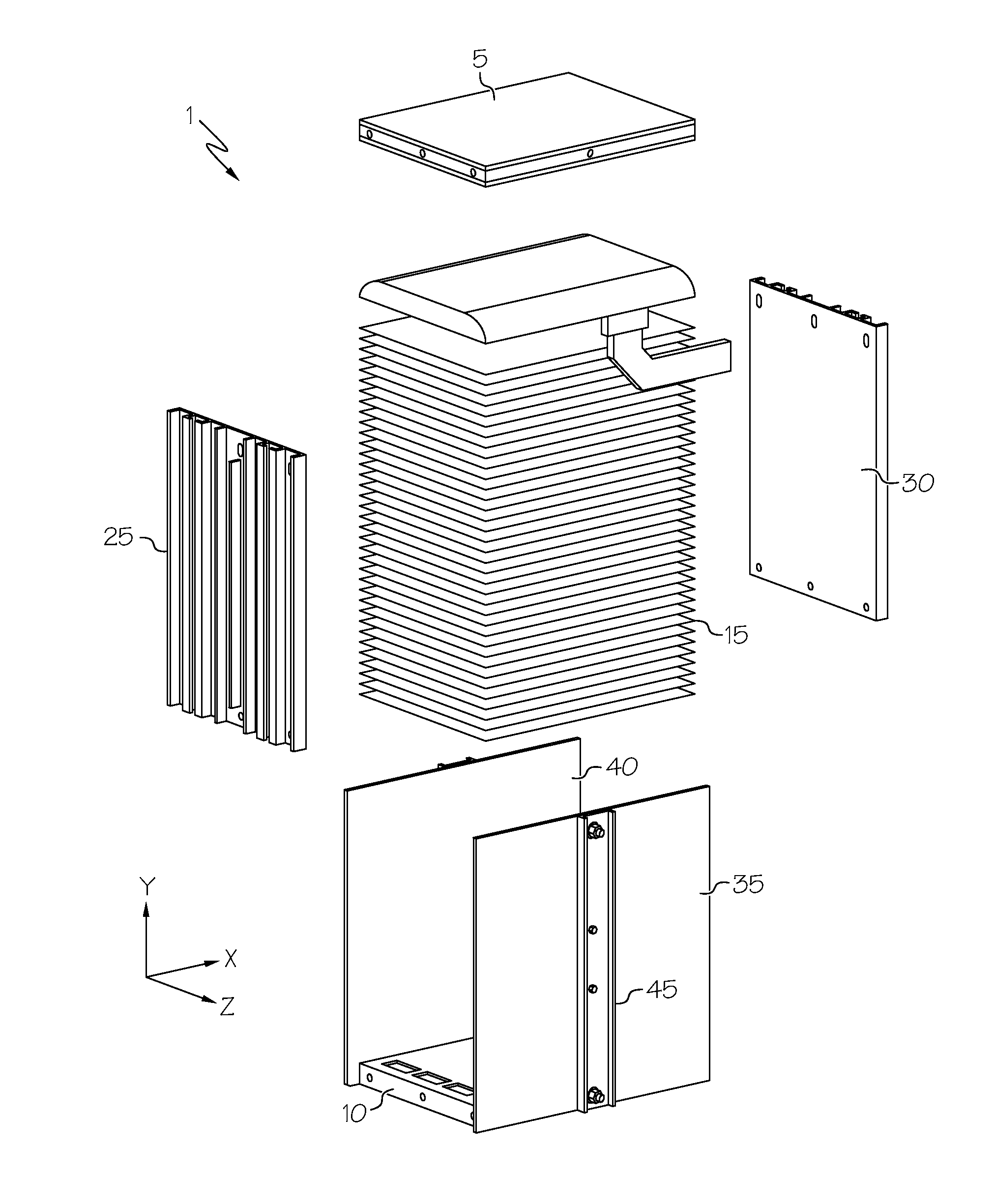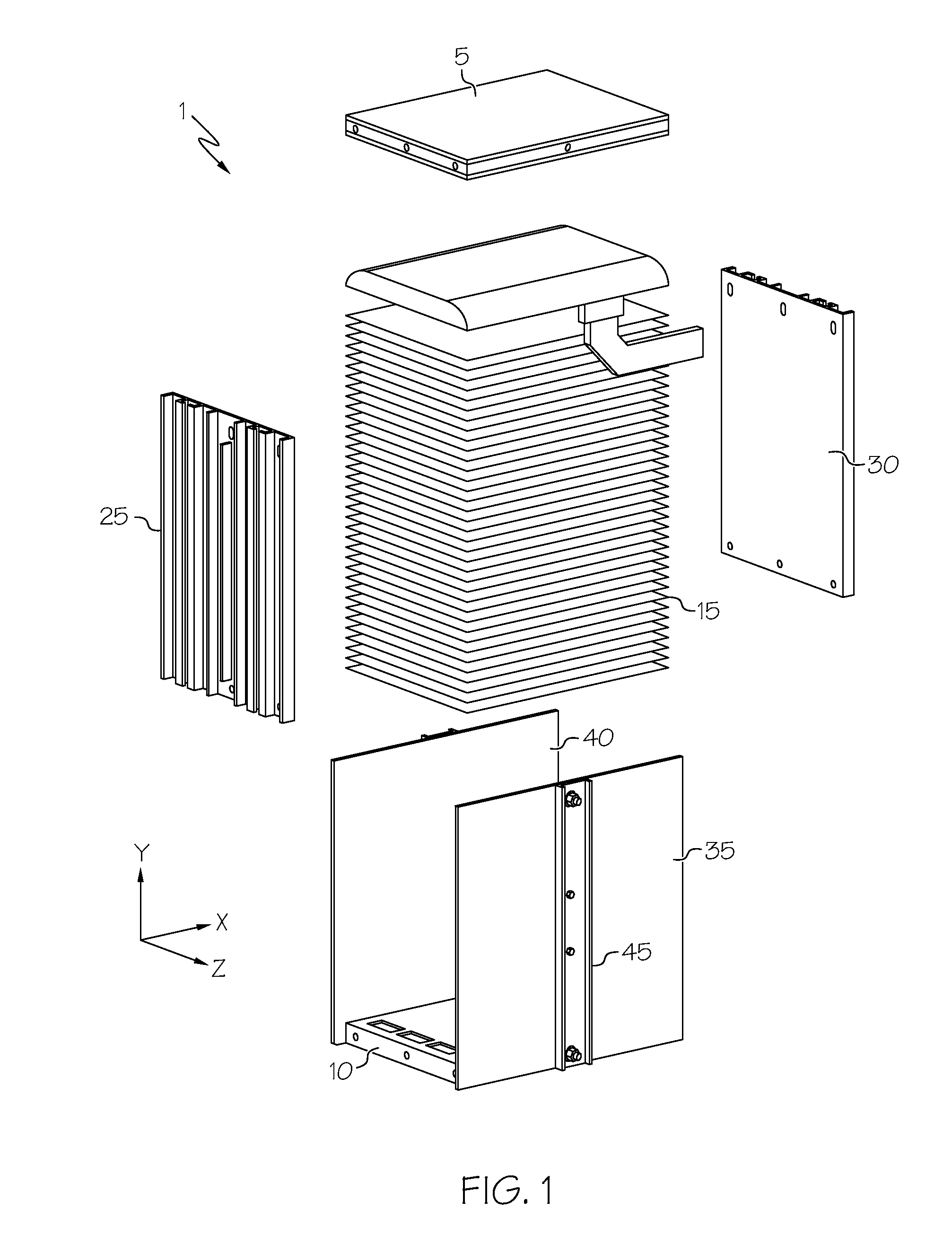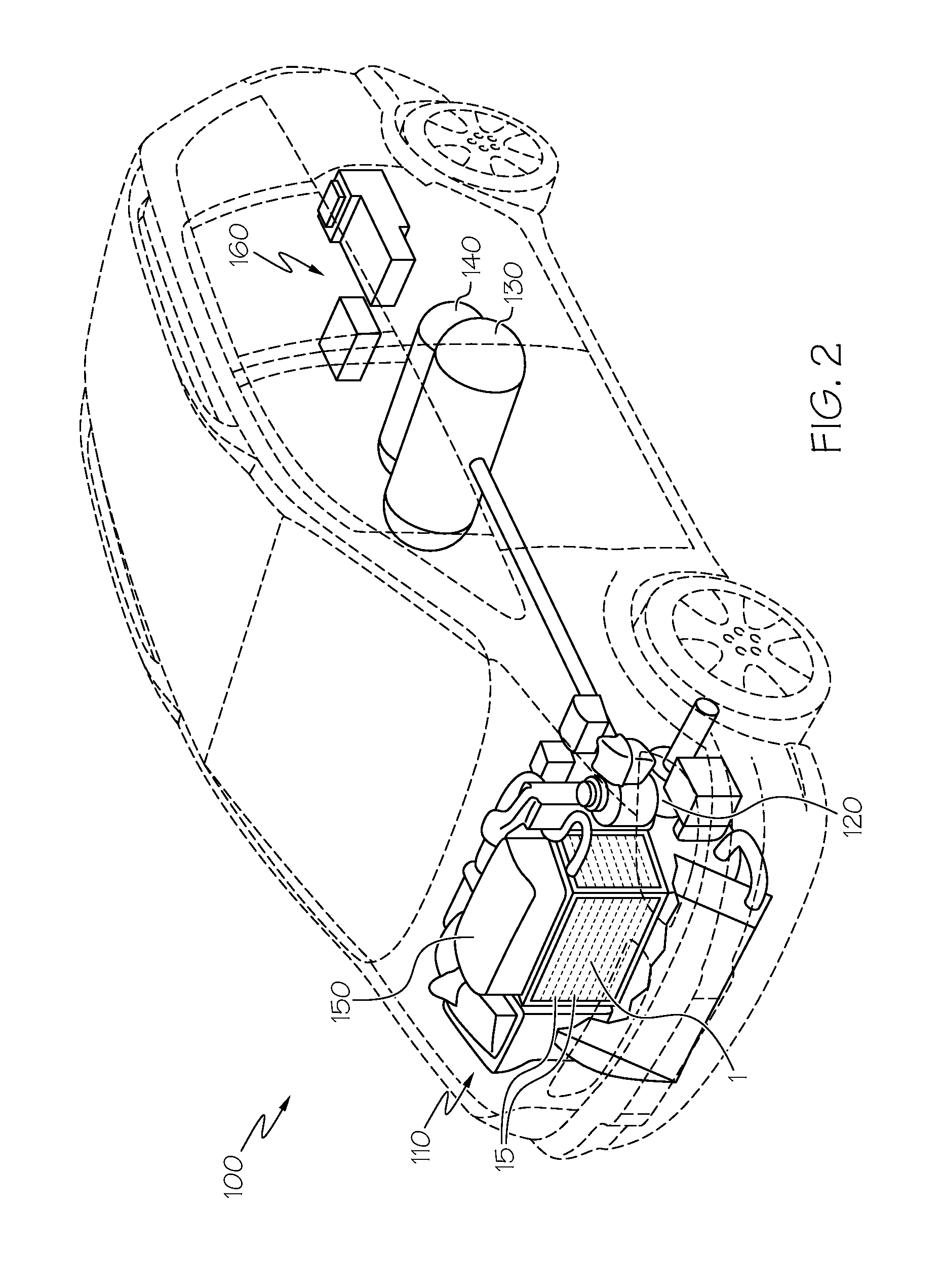Fuel cell stack assembly - datum design for fuel cell stacking and collision protection
a fuel cell and stack assembly technology, applied in the direction of cell components, electrochemical generators, cell component details, etc., can solve the problems of increasing weight and complexity, facilitating subsequent stack disassembly, and exacerbated problems, so as to improve the resistance to inter-cell shifting, increase the resistance, and increase the resistance
- Summary
- Abstract
- Description
- Claims
- Application Information
AI Technical Summary
Benefits of technology
Problems solved by technology
Method used
Image
Examples
Embodiment Construction
[0017]Referring first to FIG. 1, a fuel cell stack 1 is shown, and includes a dry end unit plate 5, a wet end unit plate 10 and a block of fuel cells 15 placed in stacking alignment between the end unit plates 5, 10. Although not shown in detail, each fuel cell 15 within the block generally includes the anode, cathode, and membrane arranged together to form the generally planar sandwich structure of the MEA that is pressed between a pair of the gas-permeable electrically conductive diffusion media that serve to both deliver reactants (i.e., H2 on the anode side of the MEA and O2 (typically in the form of air) on the cathode side of the MEA as well as collect electrical current that is catalytically produced at the anode and cathode. Within the present context, the stacking dimension that corresponds to the height of the assembled stack 1 is defined along the Y-axis as shown, although it will be appreciated by those skilled in the art that such is a matter of convenience, and that an...
PUM
| Property | Measurement | Unit |
|---|---|---|
| displacements | aaaaa | aaaaa |
| displacements | aaaaa | aaaaa |
| thickness | aaaaa | aaaaa |
Abstract
Description
Claims
Application Information
 Login to View More
Login to View More - R&D
- Intellectual Property
- Life Sciences
- Materials
- Tech Scout
- Unparalleled Data Quality
- Higher Quality Content
- 60% Fewer Hallucinations
Browse by: Latest US Patents, China's latest patents, Technical Efficacy Thesaurus, Application Domain, Technology Topic, Popular Technical Reports.
© 2025 PatSnap. All rights reserved.Legal|Privacy policy|Modern Slavery Act Transparency Statement|Sitemap|About US| Contact US: help@patsnap.com



